My grandfather, William Wilson Porter, visited Borneo before I was born. He sent my brothers a shrunken head. My father took it to the hospital to determine if it as real. It was. My mother threw it away. Childhood memories had sparked my interest, but my mission on a recent visit was to learn about the conservation efforts of Malaysian Borneo. And perhaps to touch on the past that has been sensationalized in my family lore and western perceptions.
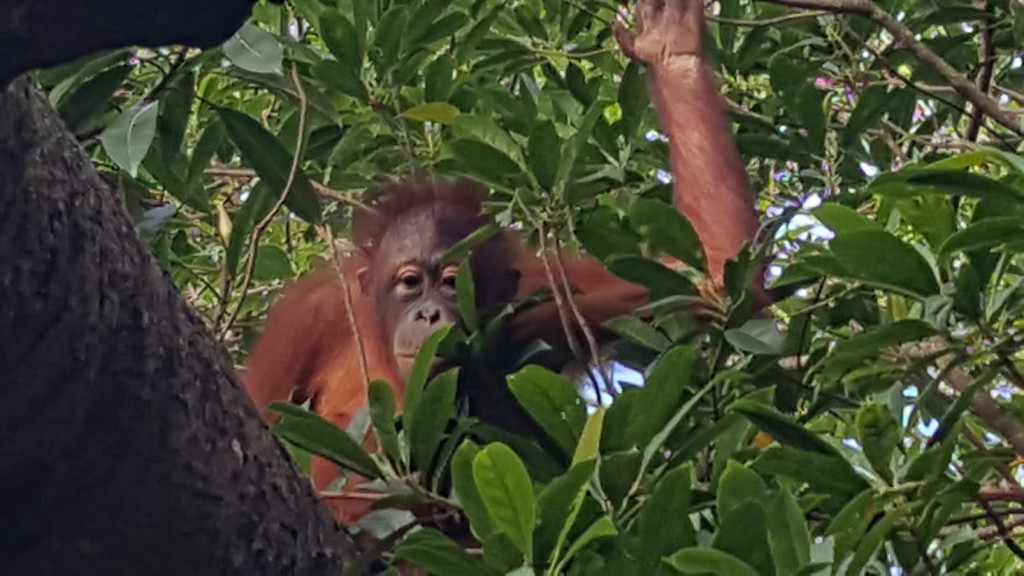
I arrived in Kota Kinabalu, in the Malaysian state of Sabah on the easternmost territory of Borneo excited to see their work protecting the orangutans. What I found was an amazing state, working hard to protect their natural treasures and promoting respect for all citizens. With a population of 3.2 million, 35 ethnicities and 50 languages, I was told there is no racial strife, “because there are too many enemies to choose from.”
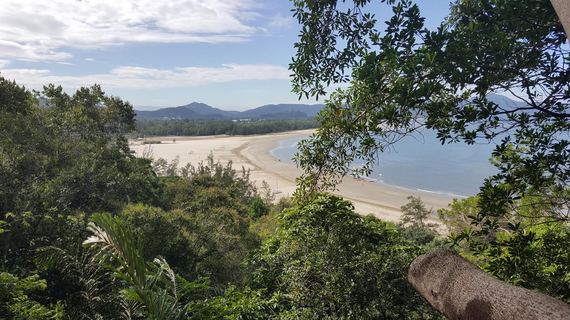
In Sabah, the Minister of Tourism is also the Minister of Environment and this speaks volumes about the priorities of this state. Two ministries that often conflict are led by one man. I was fortunate to spend the afternoon with His Excellency, Masidi Manjun ( @MasidiM on Twitter) during my recent visit to Kota Kinabalu while cruising on Silversea Cruise Lines. We had “met” several months earlier on Twitter when he reached out to me after I tweeted I would be visiting.
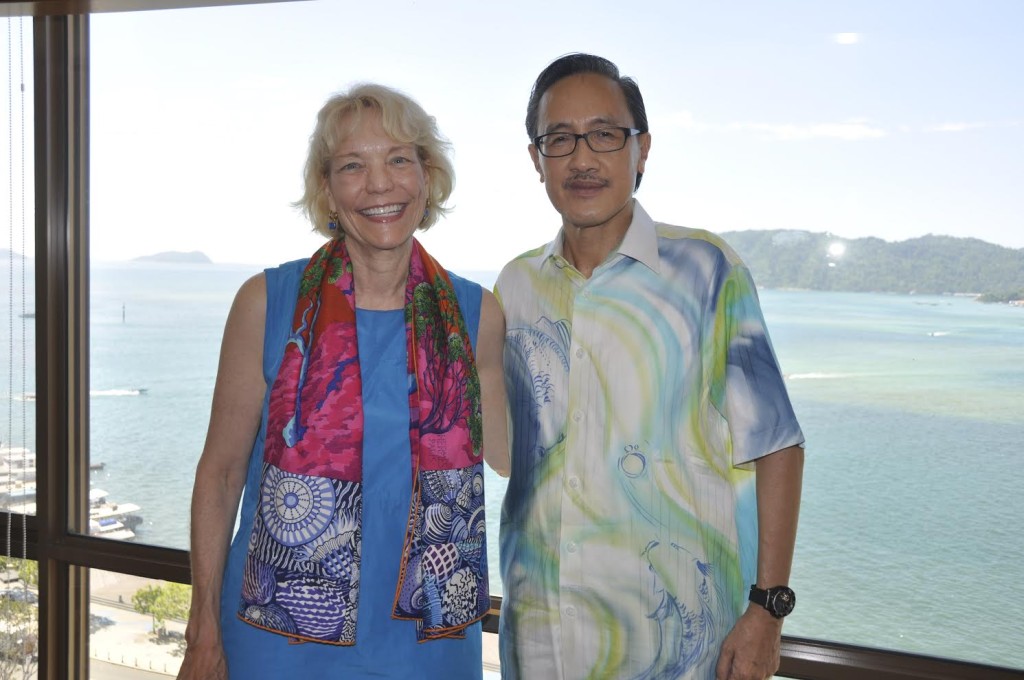
Kota Kinabalu has reinvented itself over the past 70 years. Occupied by the Japanese during World War II, it was nearly decimated by Australian bombing. The state they have rebuilt is one that is a leader in world conservation efforts and environmentally sensitive government policies. Protection of one of the most ecologically diverse regions on earth is their highest priority but they need help. Challenges are mounting with the current “oil crisis” and the falling price of oil but their policies to protect the flora and fauna remain firm. Often in the shadow of conservation efforts in Africa, Malaysian Borneo’s needs are great and their efforts impressive.
Their work with the native orangutans has been a great success. One unique, public/private partnership in Kota Kinabalu is Shangri La Rasa Ria Nature Reserve. Here they foster young orangutans from infancy until they are old enough to be transferred to the Sepilok Orangutan Rehabilitation Center further north. The support of Shangri La Hotels and a private NGO “Wildlife Rescue Unit” has created a much needed sanctuary for these young orangutans. They also use this site to educate school groups on conservation efforts. They are educating the youth in hopes they will help teach their elders about the need to protect all native wildlife and the environment. The same Wildlife Rescue Unit is also focussing on the plight of the native pygmy elephant. There are only 2000 left on earth.
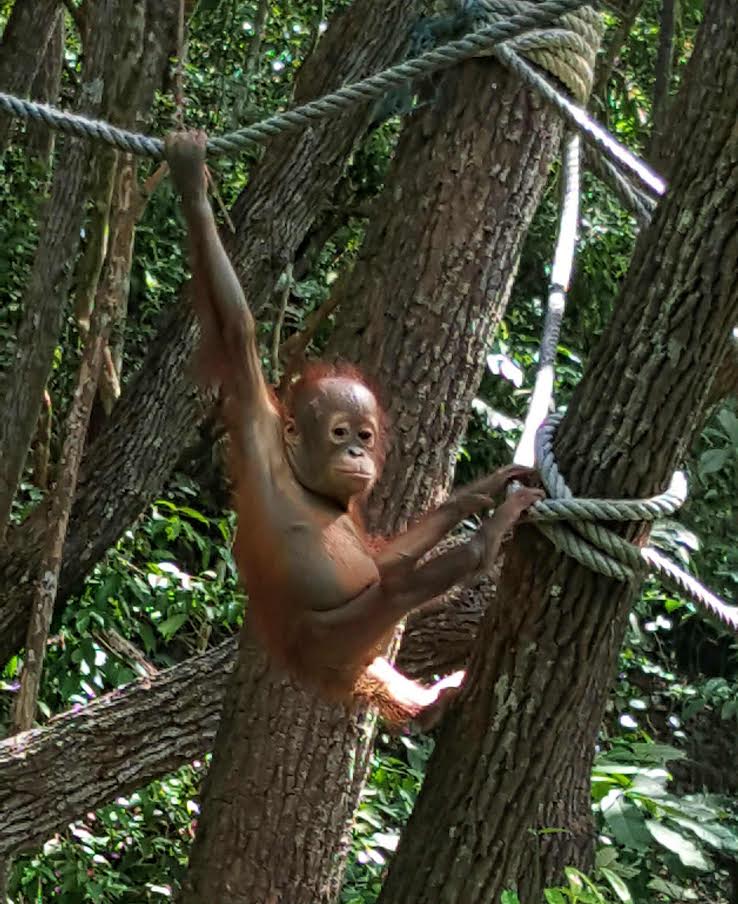
The government of Sabah has also been very forward thinking in enacting sustainable timbering policies and building codes. The new convention center under construction will have environmentally sensitive pilings instead of adding new landfill to the shoreline. These are only two examples of many of their policies. Policies at first glance that may hinder development and tourism, but which ultimately enhance both.
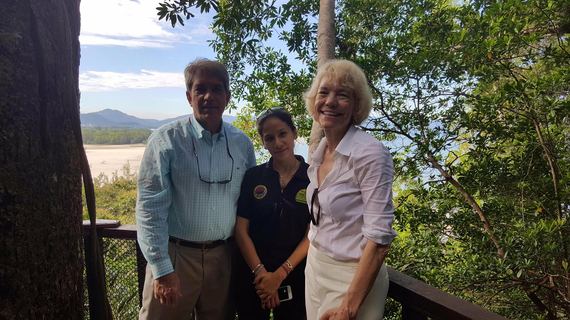
But what about the Headhunting?
After learning about their impressive work in sustainable development, protection of flora and fauna and responsible tourism, I hesitated to share my family story with HE Manjun. I feared offending. But not at all. He told me that his family was from the foot of Mount Kinabalu and he was now head of his clan. As such, he was the keeper of the clan’s sword. A sword that had been used to behead their enemies and still has hairs from some of their victims on it. He went on to tell me that there are special procedures to handle the shrunken heads collected in the past. Special huts house these though many were falling into disrepair. Yet significantly, they do not ignore this part of their past. They recognize their past tribal customs and respect the heritage of all. In my opinion, this has evolved into a respect for the wonderful land on which they all live. No longer a cartoonish depiction on the “Little Rascals”, Sabah and Malaysian Borneo deserve praise and international support for their environmental leadership.
Clearly my mother had not respected their customs when she threw ours away and I think I must return to atone for that sin. And to spend more time in this eco-paradise. Kudos to Sabah, an environmental leader.
Please Note: There are many ways you can support the conservation efforts of Sabah. One is the Orangutan Appeal UK or in the US through the World Wildlife Fund. Or you can choose to visit and be inspired as I was. Also be sure and follow @SabahTourism on Twitter where they share their story.
I was an invited guest on Silversea Cruises but as always, the opinions are my own. And my opinion is that Silversea offered me to ultimate in luxury cruising: the opportunity to discover and shine a light on the Borneo of today. Thank you and thank you again Silversea.
Article also appeared in Huffington Post. That article can be found here.
